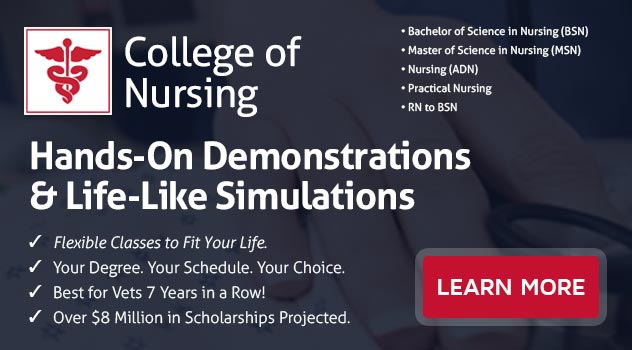How Long Does it Take to Get a Nursing Degree if You Have a Bachelor's Already?
Considering the switch to nursing? Doubtless you have a lot of questions. Will that bachelor's degree you earned a few years back be of any benefit in obtaining your nursing training? And if it is, how long will it take you to get your degree so you can move on toward your NCLEX certification and be on your way in your new profession?
Earning a Nursing Degree at an Accelerated Pace
You have two basic options when you want to work as a registered nurse (RN): you can earn an associate's degree in nursing, or a Bachelor of Science degree in nursing (BSN). The associate's degree is the traditional degree most RNs opted for in the past, but increasingly, the BSN is becoming the preferred level of education for professional nurses.
For those already in the working world, the idea of taking time off work or having to crowd an already busy schedule with attending classes to earn another four-year degree, is daunting. Fortunately, some options make earning a nursing degree a bit easier.
Accelerated programs are a relatively new (and highly convenient) option. Depending on the institution, and also depending on how many of your courses from your previous bachelor's degree will transfer, an accelerated BSN program could take anywhere from 11 to 18 months. Remember that every student is an individual, and their learning track will be different based on what classes they've previously taken and the classes they have yet to take.
What's So Different About Second Degree Programs?
For one thing, students in second-degree BSN programs are generally older then the fresh-from-high-school 18 year-olds who usually populate college classrooms. That means they are likely more focused and motivated to do well, without distractions. Expectations are higher for these non-traditional students in accelerated programs.
In the accelerated nursing program, coursework will focus on nursing with some classes that expand on the scientific knowledge the student may have obtained as an undergraduate, say in biology or chemistry.
Your on-site classes will have both classroom lectures and laboratory sessions, where you will learn about human anatomy and physiology, and how to administer certain treatments to patients through advanced simulation technology. Some typical courses might be these:
- Nursing essentials
- Pathophysiology
- Pharmacology
- Mental health nursing
- Public health nursing
- Medical/surgical nursing
- Nursing care of children and women
The training is designed to give the student experience in caring for various age groups and populations in acute care.
Prerequisites
Generally students in a bachelor's to BSN program will need to have completed certain prerequisite courses, such as anatomy and physiology, microbiology, chemistry, statistics, English, sociology or psychology, and possibly developmental psychology.
You will have also had to maintain a certain grade level in these prerequisites, as well as an overall satisfactory GPA. It's generally assumed that a bachelor's to BSN student will have about 60 transferable credits. As each person is different, their academic records will have to be evaluated to see what transfers into the program and what courses they will have to take before starting or during the course of their BSN program.
Are You Ready to Move from Bachelor's to BSN?
If you want to become a nurse, today is a great day to get started! To start your journey towards a Bachelor of Science Degree in Nursing (BSN), ECPI University can help. For more information about this exciting opportunity, connect with a helpful admissions professional today.
It could be the Best Decision You Ever Make!
DISCLAIMER – ECPI University makes no claim, warranty, or guarantee as to actual employability or earning potential to current, past or future students or graduates of any educational program we offer. The ECPI University website is published for informational purposes only. Every effort is made to ensure the accuracy of information contained on the ECPI.edu domain; however, no warranty of accuracy is made. No contractual rights, either expressed or implied, are created by its content.
For more information about ECPI University or any of our programs click here: http://www.ecpi.edu/ or http://ow.ly/Ca1ya.





